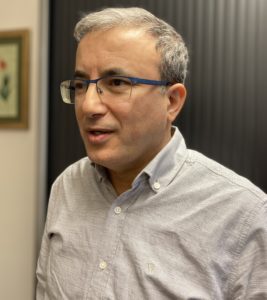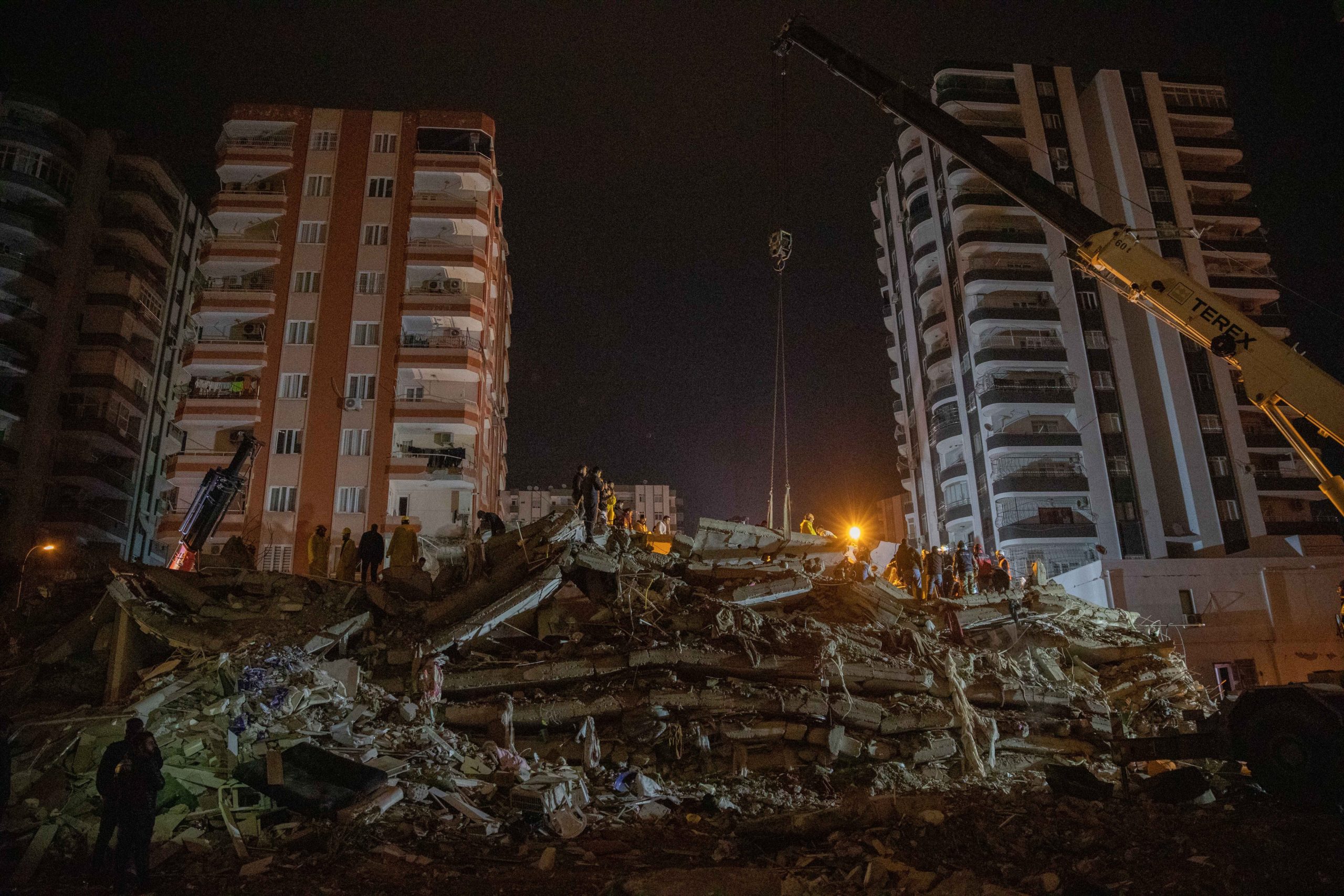Bedir Tekinerdogan is the chairholder for the Information Technology group. But now, in the aftermath of the earthquakes in Turkey and Syria, his primary role is that of son-in-law, brother-in-law, nephew and uncle. The catastrophe took place in his region of origin, where he still has many family members. He ‘is crying inside’, he tells Resource.
Some snippets are all that Tekinerdogan remembers of his early years in Turkey. He was just four years old when the family joined his father in the Netherlands. Before that, they lived in a village near Besni, in the Adiyaman region. No more than 80 kilometres from the epicentre of the two devastating earthquakes that hit at the start of February. He visited the region often, for the last time during the Christmas holidays, to spend time with his in-laws. His aunts and uncles, his wife’s parents, her sisters and their families all live there. Or rather: lived there.
Relative

TOn that fateful morning, Tekinerdogan rose early. Soon, he saw the news footage of the earthquake. He immediately texted his family in Turkey to inquire whether they were all right. One by one, they responded that they were okay. ‘Initially, I was relieved: they are unharmed, and everything is okay’, Tekinerdogan recounts. ‘It was only when I saw the pictures they sent me of their completely destroyed homes that it dawned on me that they were everything but okay. That being “okay” is a relative term in the face of a disaster of these proportions. That, in this context, it meant: we have lost everything, the suffering is indescribable, but we are still alive.’
Dystopian
Tekinerdogan’s family was lucky. They made it to the ground floor of their building in time and were able to flee into the streets when the earth began to shake. And others, who did not make it out in time, we lucky that their building didn’t come down.
The family has managed to leave the disaster area and is currently staying with acquaintances in Mersin, on the Turkish south coast. The days leading up to their departure are described as dystopian by Tekinerdogan. There was no gas, no electricity, and no water. Spending nights in the car. No relief services yet (‘this disaster is actually too big for just one country’), and destruction and misery as far as the eye can see.
Children, in particular, are heavily traumatised the professor states. ‘My sister-in-law reported that her twelve-year-old daughter cried uninterruptedly for days. Her eight-year-old brother, in contrast, did not speak for four days. The impact is not just material but also mental. No one knows how to carry on from here; there is an enormous amount of grief and trauma to process.’
The truly important things in life are not things
And how about Tekinerdogan himself? How is he coping? ‘I feel mentally strong, although I took a few days off during the first week. As a chairholder, I have busy days, but I was unable to put my mind to it/ I wanted to make some room to help people, call them and inquire about what they need and reassure them. I felt that the social and human aspects deserved priority. I am glad I did this, especially for my wife, who was very distraught. It is quite something if those you love the most face something so unimaginably terrible.’
The professor feels bolstered by the enormous support from the Netherlands. The engagement of his WUR colleagues, but also the almost 90 million euros in relief funds raised by the national Giro 555 campaign. ‘I am proud. My fatherland caring for my motherland warms my heart.’
More than material
This disaster casts a new perspective on life, says Tekinerdogan. ‘I cry inside, but I also accept that grief and sadness are part of life. Perhaps something of a tribulation. You can be desperate or fight it, but that does not help at all. This disaster proves that you must cherish good fortune and be grateful for all that you have; it may end in a split second. My life’s philosophy has always been that humans are vulnerable. I have always been wary of the so-called self-made people who perceive themselves as the epicentre of the world. It is not about money or status, and there is more to life than material things. The truly important things in life are not things.’

 Two earthquakes, one after the other, in the dead of night and the middle of winter: a nightmare scenario. Photo Shutterstock
Two earthquakes, one after the other, in the dead of night and the middle of winter: a nightmare scenario. Photo Shutterstock